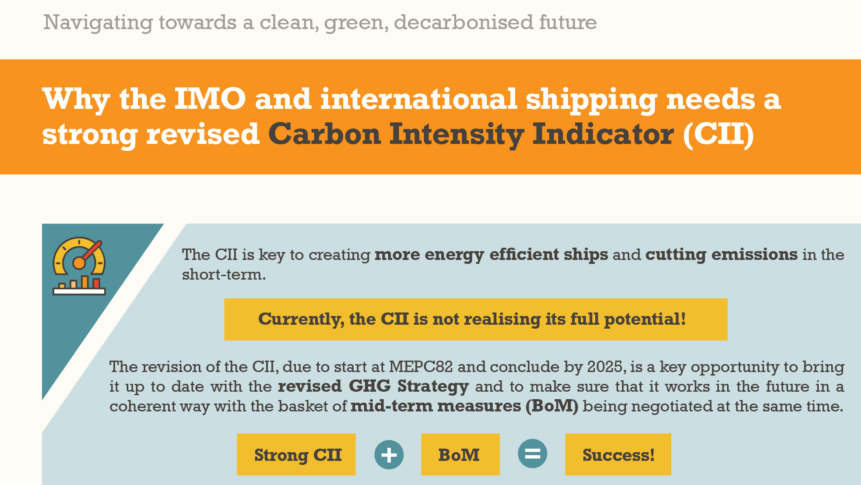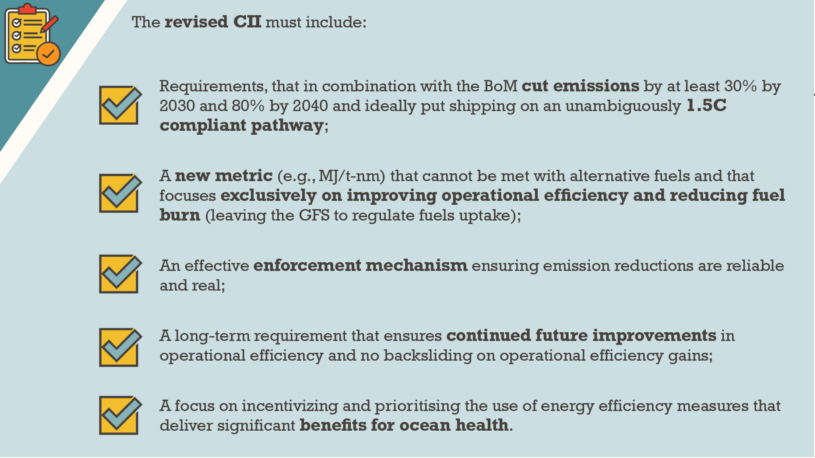IMO shelves Marshall Islands’ call to set a global CO2 target for shipping

Regrettably the IMO decided today that business as usual is more important than agreeing that international shipping must make its fair contribution to combatting climate change.
Today’s proposals and procedural excuses at the IMO in London are evidently more important than heeding to impassioned pleas by the Foreign Minister of the Marshall Islands and the Climate Change Minister of recently cyclone-ravaged Vanuatu that shipping must first agree whether a reduction target is the overall objective.
Of even greater regret is that important European countries – not to mention the US, Australia and Japan – couldn’t even bring themselves to mention the word target. Once again it’s up to the UNFCCC meeting in Paris at the end of the year to make clear that global action on the climate requires all sectors to act. And the message for the EU is clear.
The IMO continues to fail in its obligations to act. Europe needs to move quickly now and build on its recently agreed ship emission monitoring regulation by introducing measures to require all ships calling at European ports to make their fair reduction contribution.
As the Foreign Minister of the Marshall Islands, Tony de Brum, said today in introducing the proposal: “After years of fiddling at the edges, 2015 must be the year of action. We present our proposal so that global shipping can be a climate leader. I call on my colleagues here today to join us. With wind in our sails on the road to Paris, we must step forward together to take decisive action for our planet’s future.”
Bill Hemmings, shipping programme manager with Transport & Environment, said: “How incredible! Pacific Island delegations confronted the IMO with the fundamental question as to its relevance on the gravest issue facing mankind. A simple Nyet took only 90 minutes but the world must continue to hold the shipping industry and IMO to account.”
John Maggs, senior policy advisor with Seas At Risk and president of the Clean Shipping Coalition, said: “Today the Marshall Islands, Vanuatu, and other small island Pacific states brought courage, clarity of purpose and the urgency of the climate change crisis to the IMO, perhaps for the first time. The failure of the IMO to grasp the significance of this moment and make an urgently needed step change in the pace of ship GHG emission reductions was shameful.”
Since Kyoto, IMO has failed to deliver significant progress to reduce greenhouse gas emissions (GHG) from the international shipping sector. Shipping emissions have increased by approximately 70% since 1990 and represented 2.7% of global CO2 emissions in 2012. If these emissions were reported as a country, maritime transport would rank between Japan and Germany on a table of CO2 emitters. Under current policies, the IMO’s 2014 GHG study forecasts shipping CO2 emissions to increase by 50% to 250% by 2050, which would then represent between 6% to 14% of total global emissions. While emissions from other sectors have started declining or are looking to peak in 2020, none of the “business as usual” scenarios for shipping foresee a decline in shipping emissions before 2050.


